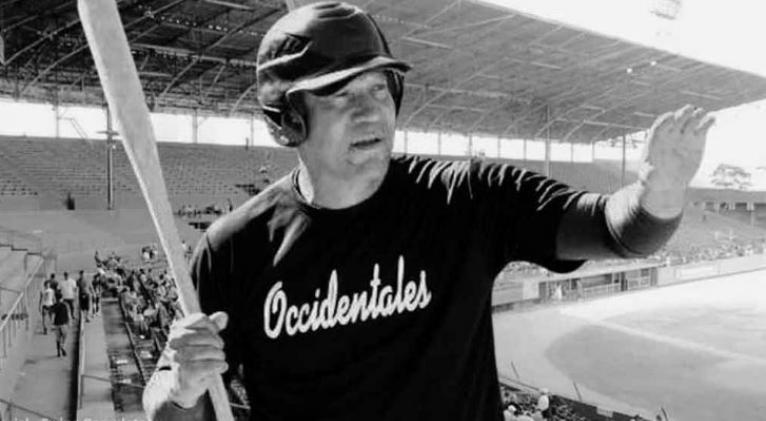Pedro Medina: The Hero of Edmonton
especiales

Pedro Medina stood before the mirror in the locker room of Edmonton’s stadium, just minutes away from crouching behind home plate to catch pitches in the gold medal game of the V Intercontinental Cup.
A heavy silence enveloped him, wrapping his six-foot frame like a metallic armor, while the noise of the crowd seemed trapped in another dimension on that August night in 1981.
There were no demons around him, no wicked voices to unsettle his nerves with intrusive whispers. Only silence. Only focus.
The mirror reflected perfect swings in the batting cage against a left-handed pitcher. But Medina didn’t move. Clad in his red jersey, the four white letters on his chest gleaming, he visualized solid line drives and sharp throws to second base.
Another final against the Americans—he could already imagine the anticipation back home: crowds huddled around public televisions, tension thick in the air, hearts clenched.
Medina knew this was more than just a baseball game. He exhaled like a bull in the ring and let slip an unprintable curse just as the silence broke.
The team’s manager, Servio Borges, entered the locker room with a scribbled lineup in hand. Conversations died. Harsh and biting, the coach delivered a short pep talk before reading the batting order.
Medina didn’t hear his name. For a moment, he thought his concentration had betrayed him.
"He put Albertico [Alberto Martínez] in," someone whispered. "Told the press you had a stomachache."
A jolt shot through Medina’s feet. How could the regular catcher be benched in a game like this? His hands cramped. A stifling heat crawled up his neck and face.
Players began filing out through the narrow hallway toward the field. Albertico patted his shoulder as he passed but couldn’t meet his eyes. Medina remained frozen, staring at the manager as he shuffled papers on a table.
"Servio," Medina said, voice restrained, "you’re gonna have to put me in eventually. I’ll do my job. Then we’ll see how this ends."
And he vanished after his teammates.
Ninth inning. Two outs blinked on the scoreboard like swords dangling over the Cuban players’ heads. The score: 5-4, in favor of the Americans.
Medina had barely spoken a word in three hours of play. Summer nights in Edmonton grew cooler with time, but his soul burned like hot coals.
The manager, standing in a corner of the dugout, felt a prick at the back of his neck. He turned and saw him—the burly Industriales catcher from Cuba’s National Series, gripping a bat in the shadows, gaze unbroken.
The manager glanced back at the scoreboard. Removed his cap. His trembling left hand ran through his hair.
"Medina… you’re up," he said, almost a whisper that sounded like a plea.
Bat on his shoulder, Medina stepped onto the field with slow strides. The same left-handed pitcher from the start of the game still stood on the mound. Over nine innings, Medina had studied every gesture, every pitch, every tic.
After two bad balls, he looked to the third-base coach but never saw him. The scene was a frenzy of bodies and noise, nothing like Havana’s Latinoamericano Stadium.
The first strike came like lightning, snuffing out hope across Cuba. Medina didn’t ask for calm. He made no promises. His face was an indecipherable equation.
His eyes swept the dugout. He searched for the manager but couldn’t find him. All he saw was the lone-star flag glowing faintly in a corner.
Thoughts collided in his mind. The pitch came fast, low, at the knees. Medina swung.
The ball soared, cutting through the air down the left-field line… far… farther… gone!
The game was tied!
Millions of Cubans leapt in unison as Medina, now a hero, rounded the bases in deafening celebration, his eyes scanning for the manager—lost somewhere in the roaring joy of his own players.














Add new comment